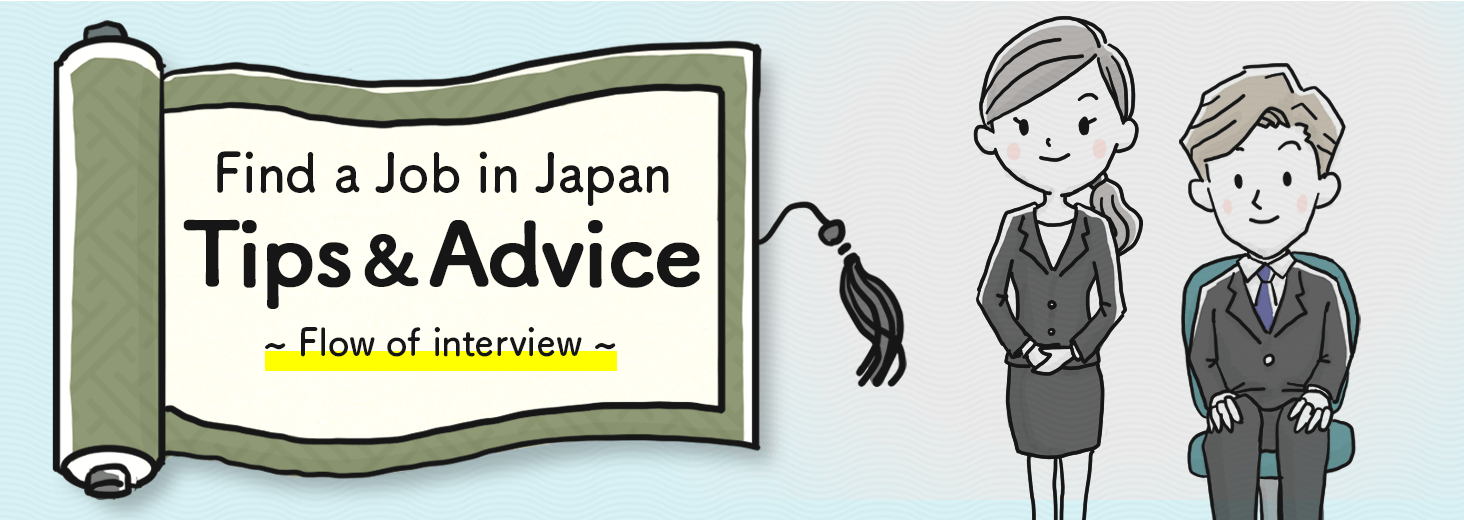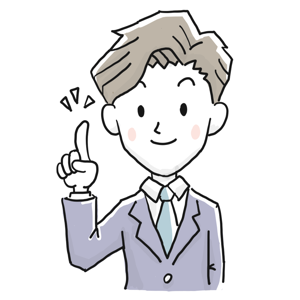Global Career Guide


- Jobs in Japan @ Daijob.com
- Global Career Guide
- Tips & Advice
- Interview
- Flow of interview

2. Flow of interview
After the reception is completed, the interview will begin at last. The interview is not one sided, but it is a place where people can confirm their compatibility. Keep in mind the general flow of primary interviews so you can relax and concentrate on the content.
- Self-introduction
- Explanation of career background
- Description of motivation
- Questions and answers
(1) Self-introduction
Sit upright, face the interviewer and begin by introduing yourself by your full name. Briefly talk about your job experience that can be used in the position that you are applying for (30 seconds to 1 minute). The interviewer will ask in more detail about your work history later in the interview so no need to go into detail during this introduction.

(2) Explanation of your career background
Summarize your work and skills that you have acquired until now. Among them, talk about specific numbers and achievements, to convey your particular strengths. Focus on the skills and experience that will be used in the new position. Avoid discussing skills or experience irrelevant to the organization or position.

(3) Describing your motivations
This is the place to talk about why you would like to work for this specific company. It is important to look at yourself fro the company's perspective.
To prepare for this part, look up information about the company you are applying for by reading the company's official pages and related articles.
Keep in mind the flow of your responses such as "I want to use my previous XX experience to help your company, specialing in XX by working as a XX."

(4) Questions and answers
Here we discuss the questions that are often asked by interviewers. If you want to ask about the questions you prepared beforehand, do it when the interviewvers give you the space. Specific questions and sample answers will be introduced on the next page “(3) Interview questions and sample answers”.
Strengths and weaknesses
In order to put atention mainly on your strenghts, it is good to use more time to talk about them and try to make the interviewers remember them. For example: In my former job, I succeeded in a new project.
"Refrain from talking too much about your weaknesses that could negatively effect you in the position that you are applying for. It is important to convey that you are willing to improve your weak areas: "I had trouble managing tasks and deadlines, therefore I have been learning new techniques to better manage time and ensure that I improve in this area."

Career Plan
Be aware of what kind or people the company is looking for and answer this question while imagining yourself working in the company. If your desired career path is not inline with what is possible with the company, it could indicate that you are not an appropriate candidate.

About dissatisfaction with your current position
Be aware that harsh expressions or poor speech may raise questions about your communication abilities and adaptability. If you express your dissatisfaction with some factors of your previous company that are also present in the company you are applying for, it might make it difficult for them to hire you. Make sure to thoroughly research the company that you are applying for before making any negative comments about your previous workplace.



